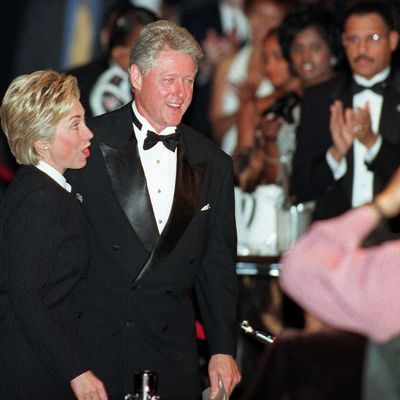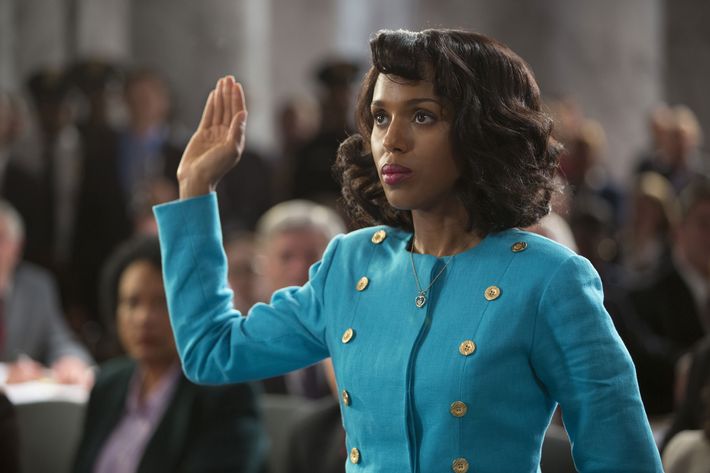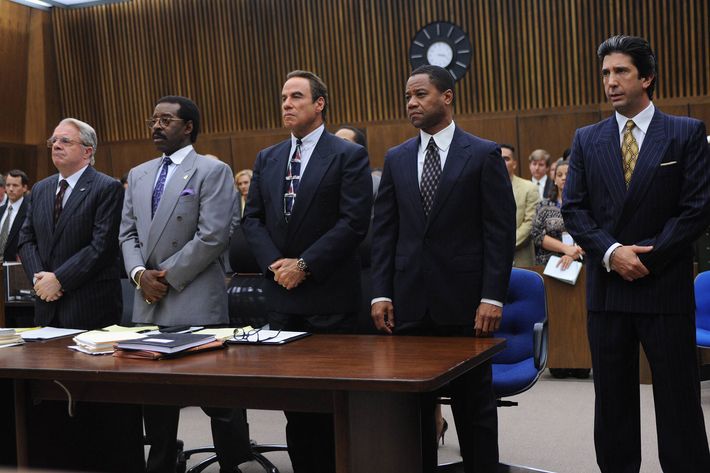
The 1990s are being relitigated, and, for the most part, coming off rather badly. It has taken place in the realm of politics, where Hillary Clinton has had to edge away from some of her husband’s policies, some of which have provoked angry confrontations on the campaign trail between the 42nd president and activists denouncing his racial legacy. And it has also taken place in the realm of culture, where television has revisited the Clarence Thomas hearings and (in a dramatization and then again in a documentary) the O.J. Simpson trial. These events intersect with one another more closely than we may assume. The racial legacy of the Clinton administration was forged in a context these poisonous dramas helped to construct.
It’s impossible to understand Bill Clinton’s political strategy without appreciating the desperation of the circumstances he and his party faced when he ran for office. The vaunted New Deal majority built by Franklin Roosevelt had collapsed in the 1960s, and the cause of its death was race — specifically, the perception that the Democratic Party had come to represent black interests at the expense of white ones. Republicans won every presidential election from 1968 through 1988, the sole exception being Jimmy Carter’s razor-thin 1976 victory, propelled by the overhang of the Watergate scandal, and bereft of progressive domestic accomplishment. “These white Democratic defectors express a profound distaste for blacks, a sentiment that pervades almost everything they think about government and politics,” concluded pollster Stanley Greenberg, who met with voters in the Detroit suburb of Macomb County to understand why they had flocked to the Republican Party.
It did not seem at the time that liberalism was merely in the midst of a historical pause between spurts of activism. It seemed that liberalism was completely dead, and Reaganism, which spoke for the growing Sun Belt, owned the future, and the main question in American politics was the speed at which the welfare state would be dismantled.
Greenberg worked for Clinton, who set out to build a party that could continue to represent African-Americans while also winning enough white voters to assemble a majority. That was the message sent by Clinton’s embrace of welfare reform and a crime law, his repudiation of Sister Souljah and his execution of mentally disabled murderer Ricky Ray Rector. Clinton did not fully or even mostly capitulate to racism. He vetoed two previous, more draconian welfare bills before ultimately signing the third, which he deemed “a decent welfare bill wrapped in a sack of shit.” He likewise appointed the most diverse administration in history to that point, and defended affirmative action against Republican attempts to abolish it.
One could make the case that Clinton compromised more than necessary, or that he accomplished too little (those accomplishments include the Family and Medical Leave Act, a more generous Earned-Income Tax Credit and a higher top tax rate, and an economic boom that yielded across-the-board wage gains). The point is that Clinton made those compromises in the face of real pressure. That African-Americans remained his most loyal constituency throughout his presidency attests to Clinton’s success in maintaining his party’s trans-racial appeal even as he reassured dubious whites.
The racial discourse of the Clinton era was a transition from the period of white backlash that followed the civil rights movement. The media and culture paid far less attention to endemic racism than it does today. But the major racial dramas of that time unfortunately contributed to this myopia.

The savage beating of Rodney King by Los Angeles Police Department officers, in 1992, seemed to portend a promising moment in racial consciousness. The assault, which an onlooker surreptitiously recorded, shocked white Americans, many of whom were unaware of the pervasiveness of police brutality. By an overwhelming margin (68 percent to 4 percent, in one poll) Americans deemed the officers guilty, and their acquittal could have provided another wake-up moment for white America. But the rioting that followed — which included an equally horrifying event in which black youths pulled a white truck driver, Reginald Denny, from his cab and beat him mercilessly in full view of helicopter cameras — diverted the conversation back into backlash territory. The subject was no longer deep patterns of racial discrimination, but the senseless overreaction it had provoked.
The riots formed the backdrop for the Simpson trial, as both of the recent TV programs have shown. The Simpson trial was the preeminent national drama of the decade, a Super Bowl–level water-cooler conversation, but one that went on day after day for months on end. One could hardly imagine a worse case to educate nonblack America about racism. The facts of the case were anomalous in every way. The central figure was an African-American who had been welcomed into the white power structure, from its celebrities to the police, who regularly flocked to his home sycophantically. He was obviously guilty but got off by exploiting his identity as an African-American. The dominant and unjust power on display in the episode was not racism but African-American anger at racism.

In this way, the Simpson trial mirrored the earlier Thomas hearings from 1991 — which would have been the national soap opera of the decade if the Simpson trial hadn’t supplanted it a few years later. The hearings provided a national melodrama centered on gender and sexual harassment. But the denouement of this episode centered on race, when Thomas forcefully, and successfully, defended himself by casting the accusations as racist:
[F]rom my standpoint as a black American, as far as I’m concerned, it is a high-tech lynching for uppity blacks who in any way deign to think for themselves, to do for themselves, to have different ideas, and it is a message that unless you kowtow to an old order, this is what will happen to you. You will be lynched, destroyed, caricatured by a committee of the U.S.— U.S. Senate, rather than hung from a tree.
Thomas’s guilt was not as glaring or as broadly acknowledged as Simpson’s (in part because not all the evidence of his guilt was made public at the time). But here was a black man who seemed at least probably guilty, who had been nominated in part because of (and thus benefited from) his race, using race to shield himself from accountability. He was dismissing the charges against him as a form of lynching, even though his chief accuser was also black. Like Simpson, he was a guilty man getting off because he — to use a term that was widely used at the time — played the race card. The term has acquired a bad odor among liberals, and understandably so, because it can be used to dismiss legitimate claims about racism. But one reason it resonates is that it was put to such famous use.
The implicit lesson of all these cases at the time was that racism has less force than the reaction to it, that crying racism is a powerful card that African-Americans can play when it suits them. That lesson, to be perfectly clear, is wrong — or, at least usually wrong, in that the situations in which it holds true are the exception, and pervasive structural racism the rule.
But, as the saying goes, hard cases make for bad law. (That is, rules created in response to unusual circumstances are unlikely to work well for normal circumstances.) The same holds true for public opinion. Clinton was attempting, fitfully, to move middle America past its post-’60s racial-backlash phase, and outside events did not give him much help.






























